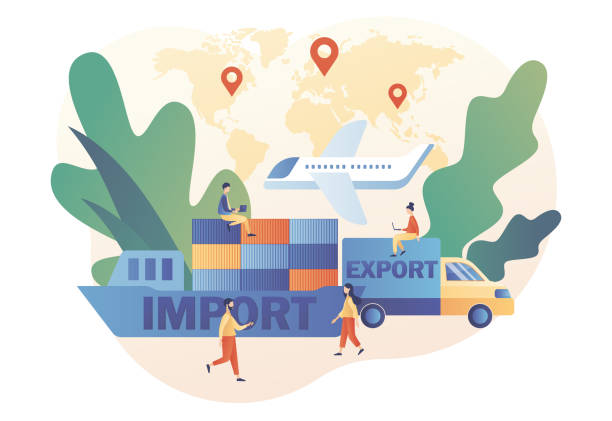Dubai stands as one of the world’s busiest logistics hubs, thanks to its strategic location and advanced infrastructure. air cargo services dubai play a central role in connecting global markets, offering efficient, time-sensitive transportation solutions for goods of all kinds. Whether you’re an importer, exporter, or simply curious about global logistics, understanding how air cargo services operate in Dubai can offer useful insights.
The Role of Dubai in Global Air Cargo Logistics
Strategic Location Advantage
Dubai is situated between Europe, Asia, and Africa. This makes it an ideal midpoint for international cargo movement. It supports seamless transit for goods traveling between continents.
Government Investment in Infrastructure
Over the years, Dubai has heavily invested in its air cargo infrastructure. From world-class airports like Dubai International (DXB) and Al Maktoum International (DWC) to state-of-the-art cargo terminals, the city is built to handle large volumes of air freight efficiently.
Key Free Zones Supporting Cargo Services
Free zones like Dubai Airport Freezone (DAFZA) and Jebel Ali Free Zone (JAFZA) support air cargo activities. These areas offer customs advantages and simplified trade processes that reduce shipping time and cost.
Main Types of Air Cargo Services in Dubai
General Cargo
General cargo includes consumer goods, electronics, garments, and machinery. These are usually shipped in large volumes and packed in standardized containers or pallets.
Perishable Cargo
This category includes food, pharmaceuticals, and flowers. Dubai’s cargo terminals have specialized temperature-controlled facilities that ensure perishables remain fresh during transit.
Dangerous Goods
Dubai follows strict international guidelines for transporting hazardous materials. Special packaging and documentation are required to handle and ship these goods safely.
Express and Courier Shipments
For smaller, time-sensitive shipments, express cargo services operate with high frequency. These services are commonly used by e-commerce businesses and global couriers.
Step-by-Step Process of Air Cargo Shipping in Dubai
Booking and Documentation
The process begins with booking the cargo space with an airline or a freight forwarder. Documents such as the airway bill, commercial invoice, and packing list are required. Each shipment must be clearly labeled and declared.
Cargo Handling and Screening
Once the shipment arrives at the cargo terminal, it goes through security screening. Dubai’s airports use advanced scanning systems to detect restricted or dangerous items.
Customs Clearance
Goods are cleared through Dubai Customs. If all documents are in order, clearance can take only a few hours. For items shipped through free zones, customs procedures are further simplified.
Loading and Flight Dispatch
After customs clearance, goods are loaded into aircraft cargo holds or containers. Flights are scheduled based on destination, and cargo is dispatched accordingly.
Major Airports Handling Air Cargo in Dubai
Dubai International Airport (DXB)
DXB handles most of Dubai’s passenger traffic but also supports air cargo operations. It is a hub for quick transshipments and express shipments.
Al Maktoum International Airport (DWC)
DWC is specifically designed for large-scale cargo operations. With high-capacity terminals, it can manage over 12 million tonnes of cargo annually. It also supports wide-body freighters and cargo-specific aircraft.
Benefits of Using Air Cargo Services in Dubai
Speed and Efficiency
Air cargo is the fastest mode of international transport. Dubai’s air cargo services are designed for speed, making them ideal for urgent or high-value shipments.
Global Connectivity
Dubai connects to over 200 global destinations. This extensive network ensures that goods can reach remote markets quickly and reliably.
Advanced Technology Integration
Cargo services in Dubai use automated systems for tracking, handling, and security. Digital tools reduce human error and improve processing time.
Reduced Paperwork in Free Zones
Trade conducted through Dubai’s free zones involves less paperwork and fewer regulatory steps. This leads to faster customs clearance and overall efficiency.
Challenges Faced by the Air Cargo Industry in Dubai
Rising Operational Costs
While Dubai’s facilities are top-notch, operational costs including storage and handling can be high. This can impact profit margins for small businesses.
Fluctuating Fuel Prices
Air cargo costs are sensitive to fuel prices. Variations in global oil markets can affect shipping charges and delivery timelines.
Regulatory Compliance
International shipping involves complex regulations. Businesses must stay updated on customs rules, security guidelines, and environmental standards.
Future Trends in Dubai’s Air Cargo Sector
Drone and UAV Deliveries
Dubai is exploring the use of drones for last-mile deliveries. This innovation could redefine air freight for small packages in urban areas.
AI and Automation
Artificial intelligence is being integrated into cargo operations. Predictive analytics, route optimization, and automated warehousing are set to improve efficiency.
Green Logistics
Sustainability is a growing priority. Dubai is pushing for eco-friendly air cargo operations by encouraging electric vehicles and energy-efficient systems at airports.
Final Thoughts
Dubai’s Logistics and Supply Chain Evolution: A Global Hub form a crucial part of the city’s logistics ecosystem. From general freight to specialized cargo, the process is supported by a world-class infrastructure and strategic trade policies. As Dubai continues to grow as a global logistics hub, the role of air freight will only become more important.
Whether you’re looking to understand the basics or planning to ship goods, knowing how air cargo services work in Dubai can help you make informed decisions and tap into one of the most efficient transport systems in the world.




